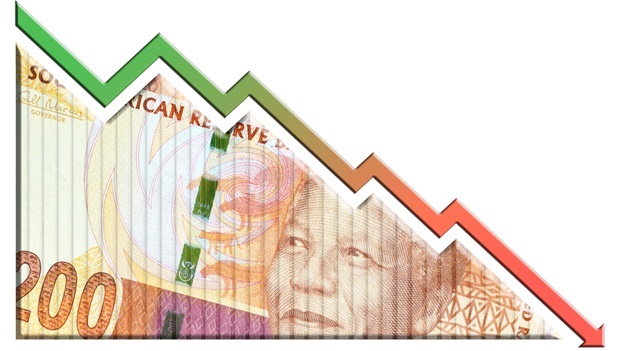
One decision, to allow private generation without the nasty bureaucratic hurdles at the National Energy Regulator of South Africa (Nersa), would unlock a flood of investment in the South African market, improving our electricity availability and ultimately growing our economy, writes James de Villiers
Make no mistake that when you look at South Africa's technical recession, announced by Statistics South Africa on Tuesday, that you look at it as a self-inflicted recession - a result of the ANC government’s inability to implement far-reaching reforms.
Or more importantly, the result of President Cyril Ramaphosa’s inability - after two years as the president of the Republic of South Africa - to implement far-reaching reforms.
Because, the 1.4% GDP decline in the fourth quarter of 2019 is the direct result of the unprecedented level 6 load shedding implemented by Eskom in December.
Load shedding that brought industries to a halt, disrupted supply chains and transportation systems, leaving employees stuck in traffic or at home and hence reducing the productivity levels of the country.
Load shedding is not an energy crisis.
Load shedding is, as described by Ramaphosa in his 2019 State of the Nation Address - where he promised a turnaround in Eskom's operations, an economic crisis.
But it is also a safety crisis and job crisis.
Every time the lights go off, entire suburbs are plunged into darkness: ideal environment for criminals.
Telecommunications companies alone have repeatedly mentioned the millions they have to spend to replace back-up batteries at signal towers which are stolen during load shedding.
That is money that could've been spent investing back into the South African economy, and thereby creating jobs.
Load shedding forces restaurants to close, mining operations to halt, and companies to send their employees home: ultimately reducing income and profit, and leading to retrenchments.
Make no mistake that the jobs South Africa lost last year are as a direct result of the president’s inability to implement reforms.
It’s been one year and five months since Ramaphosa introduced a stimulus package to address the first economic recession of his presidency.
Can you name one of the projects mentioned in the package, such as the massive R400 billion infrastructure fund (of which not one project has started construction), that has actually been implemented, or implemented without serious delays?
In his SONA in February, Ramaphosa introduced a series of energy reforms to improve the country’s electricity supply, reforms that if introduced at the start of his presidency in 2018 could’ve helped to avoid the current crisis.
However, like most of his reforms introduced, there was again no timelines for implementation - leaving South Africans at the mercy of mood of the state when they can expect relief.
Those same reforms were mentioned in the budget documents last week Wednesday where I asked Finance Minister Tito Mboweni directly when South Africans can expect implementation, a question he conveniently avoided.
Because the longer the state waits to open up the electricity grid for private generation, the longer companies are at the mercy of Eskom who could halt its operations at any moment.
One decision, to allow private generation without the nasty bureaucratic hurdles at the National Energy Regulator of South Africa (Nersa), would unlock a flood of investment in the South African market, improving our electricity availability and ultimately growing our economy.
But instead, the government remains locked in planning meetings and writing strategies - such as the National Treasury’s economic paper - without any move towards implementation.
Instead, President Ramaphosa spends his days building "social compacts" and support for his ideas among the ruling ANC alliance while our people remain jobless, and South Africa’s economy goes under.
- James de Villiers is a journalist with Business Insider.
Disclaimer: News24 encourages freedom of speech and the expression of diverse views. The views of columnists published on News24 are therefore their own and do not necessarily represent the views of News24.




 Publications
Publications
 Partners
Partners






















